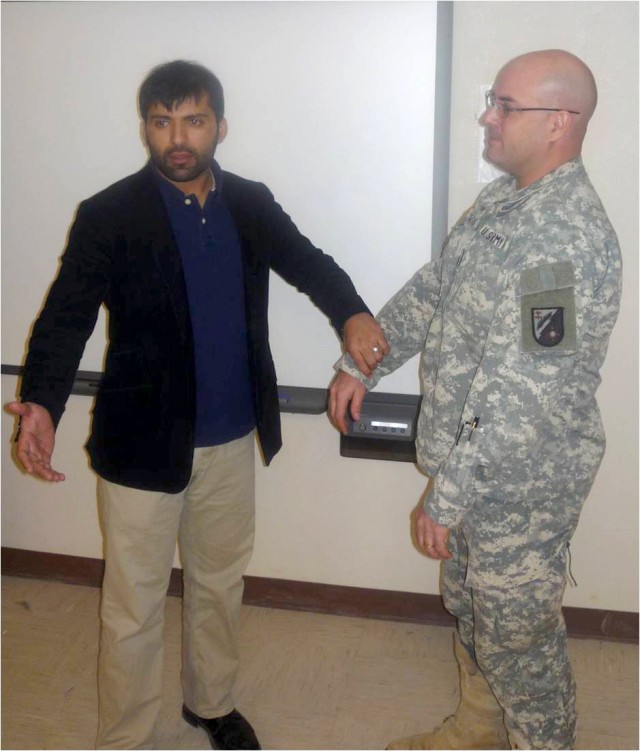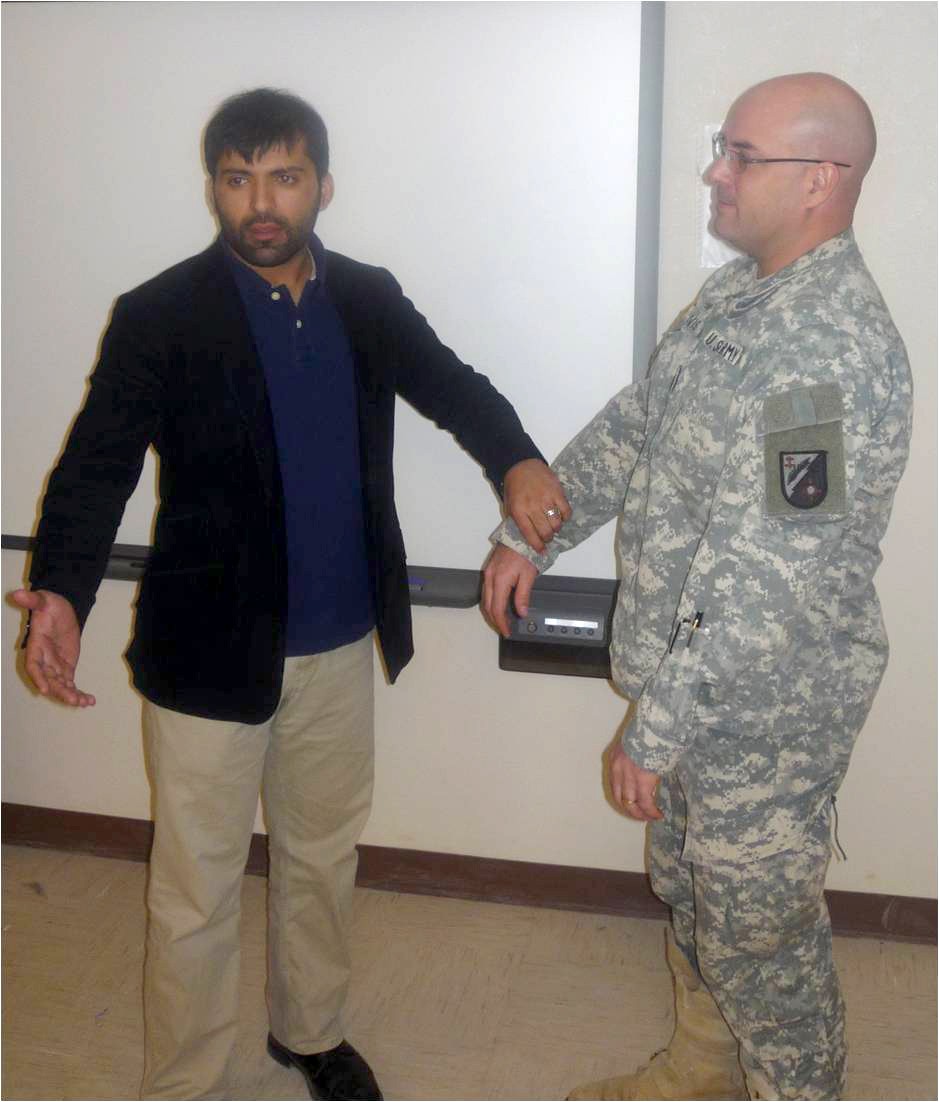FORT POLK, La. - As part of 4th Brigade Combat Team's predeployment training for its upcoming mission to Afghanistan, the 3rd Squadron, 89th Cavalry Regiment was the first Fort Polk unit to fully take part in a Counterinsurgency and Combat Advising Academy led by the Directorate of Cultural Influence and Counterinsurgency from 162nd Infantry Brigade.
While the DCC has been training COIN and adviser skills at Fort Polk and across the Army since August, this was the first opportunity for the staff to dedicate training for a fellow unit from Fort Polk.
"This was a great opportunity for both units to share information and build a good relationship for the continued professional development of each organization," said Capt. Michael Bryant, an instructor for the DCC and former company commander in 4th BCT. "It would have been a shame if we overlooked the capabilities the other provides towards the success of the governments of Iraq and Afghanistan."
The 3-89 Cavalry leadership and Soldiers participated in COIN and advising training Feb. 8-11 in Tigerland at North Fort Polk. While many leaders in the squadron had recently redeployed from Iraq, either as part of 4th BCT's recent deployment or with other units, only about a third had been to Afghanistan.
Building on this wealth of deployment experience, the DCC was able to expand on the COIN lessons learned during the squadron's Iraq deployment and help leaders focus these skills on advising the Afghan Security Forces with which they will be partnered.
"Throughout (4th BCT's) recent deployment in Baghdad, the vast majority of the brigade's Soldiers were interacting with the people on a daily basis and securing the populace - perhaps the greatest key to success in the COIN fight," said Capt. Matt Peters, an instructor in the DCC and former platoon leader in 4th BCT. "Having this experience contributed immensely during discussions in training and (will help Soldiers) to understand the complexities they will face in Afghanistan against an enemy who hides among the populace."
As part of 162nd Infantry Brigade and the Combat Advisor Center of Excellence, the DCC's mission is to train combat advisers (including Navy, Air Force, National Guard, Reserve and Active Army) at Fort Polk and select offsite locations in COIN, adviser skills and basic language skills before deployment to Iraq and Afghanistan. Other units within 4th BCT will have an opportunity to receive similar training before their deployment, but 3-89 Cavalry was the first to fully take advantage of this Fort Polk asset.
The four days of training included studying COIN doctrine and tactics, security force assistance missions for the Army, cultural awareness within Afghanistan, influence and advising skills necessary in interactions with the Afghan Security Forces and instruction in the Dari language.
From the squadron commander down to junior section leaders and Soldiers participated in this training to increase their knowledge and understanding of their upcoming mission.
By ensuring they had maximum participation, the squadron was able to capture and discuss COIN and advising across their troops and platoons, giving them a common framework to expand their knowledge and future training. Several squadron leaders had already planned additional training and will use the materials learned from the DCC to further improve their Soldiers' skills.
"It is important for all the ranks within the squadron to understand COIN for their upcoming deployment," Peters said. "Their leaders must understand what is expected of the Soldier on the ground; the 'strategic corporal' and the Soldier will benefit from the substance of these expectations. Just like tactical lane training includes the entire unit, by including all ranks, the COIN instruction benefits everyone, especially when conducted together."
Cultural advisers - contracted individuals with Afghan heritage working within the DCC - gave Soldiers an opportunity to ask questions about Afghanistan and hear from those personally familiar with the areas where they will be going. This interaction gave troopers insights on how the Afghan people view and interact with American and coalition forces within their country. This cultural influence, coupled with their introduction to Dari, gave troopers an opportunity to better understand how Afghan National Army and National Police forces may interact with them in the important role of advising.
"I have worked with coalition forces in the past and witnessed them make mistakes with Afghan government officials and religious figures, causing misunderstandings that could have been avoided," said Abdul Hamaraz, a cultural adviser in the DCC. "This lack of cultural awareness by coalition forces can be reduced by having a cultural adviser like those of us in the DCC coach and teach advisers (before) their deployment how to build rapport and relationships with Afghans."
At the end of the training, comments from leaders and Soldiers from 3-89 Cavalry included interest in further expansion of their COIN and advising skills through self-study and future partnership with 162nd Infantry Brigade.
"This week of counterinsurgency was a vital building block towards our successful deployment," said Maj. Will McNutt, squadron operations officer, who coordinated the training. "Last week we spent a week in the field doing (situational training exercise) lanes; a few weeks from now we'll be conducting live-fire exercises. This block of COIN classes is as important, if not more so, than either of those other two events.
"Blocking out an entire week on the training schedule for the whole squadron is not easy to do, but (it) was well worth it."
(Purvis serves as division chief and instructor at the 162nd Infantry Brigade's Directorate of Cultural Influence and Counterinsurgency.)


Social Sharing